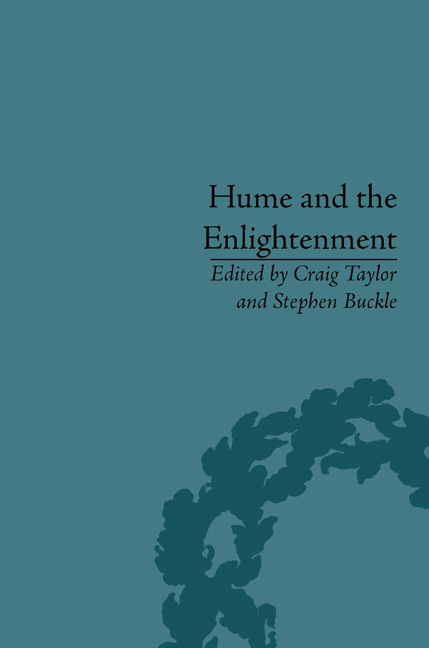Book contents
- Frontmatter
- CONTENTS
- Acknowledgements
- List of Contributors
- Abbreviations
- Introduction: Hume and his Intellectual Legacy
- 1 Hume and the Enlightenment
- 2 Will the Real Enlightenment Historian Please Stand Up? Catharine Macaulay versus David Hume
- 3 Philosophy, Historiography and the Enlightenment: A Response to Green
- 4 Hume's Enlightenment Aesthetics and Philosophy of Mathematics
- 5 Part 9 of Hume's Dialogues and ‘The Accurate Philosophical Turn of Cleanthes
- 6 ‘Strange Lengths’: Hume and Satire in the Dialogues Concerning Natural Religion
- 7 A Modern Malignant Demon? Hume's Scepticism with regard to Reason (Partly) Vindicated
- 8 Hume on Sympathy and Cruelty
- 9 Hume's Natural History of Justice
- 10 Hume and Rawls on the Stability of a Society's System of Justice
- 11 Can Hume's Impressions of Reflection Represent?
- 12 Mechanism and Thought Formation: Hume's Emancipatory Scepticism
- Notes
- Works Cited
- Index
6 - ‘Strange Lengths’: Hume and Satire in the Dialogues Concerning Natural Religion
- Frontmatter
- CONTENTS
- Acknowledgements
- List of Contributors
- Abbreviations
- Introduction: Hume and his Intellectual Legacy
- 1 Hume and the Enlightenment
- 2 Will the Real Enlightenment Historian Please Stand Up? Catharine Macaulay versus David Hume
- 3 Philosophy, Historiography and the Enlightenment: A Response to Green
- 4 Hume's Enlightenment Aesthetics and Philosophy of Mathematics
- 5 Part 9 of Hume's Dialogues and ‘The Accurate Philosophical Turn of Cleanthes
- 6 ‘Strange Lengths’: Hume and Satire in the Dialogues Concerning Natural Religion
- 7 A Modern Malignant Demon? Hume's Scepticism with regard to Reason (Partly) Vindicated
- 8 Hume on Sympathy and Cruelty
- 9 Hume's Natural History of Justice
- 10 Hume and Rawls on the Stability of a Society's System of Justice
- 11 Can Hume's Impressions of Reflection Represent?
- 12 Mechanism and Thought Formation: Hume's Emancipatory Scepticism
- Notes
- Works Cited
- Index
Summary
Your spirit of controversy, joined to your abhorrence of vulgar superstition, carries you strange lengths, when engaged in argument; and there is nothing so sacred and venerable, even in your own eyes, which you spare on that occasion. (DNR 116)
At the dramatic climax of the Dialogues concerning Natural Religion, moments after Demea has asked Philo accusingly ‘[a]re you secretly, then, a more dangerous enemy than Cleanthes himself?’ (D 11.18.87) and left the room, Cleanthes makes the more precise critique of Philo's rhetorical method above. The lengths to which Philo's unsparing abhorrence of superstition and spirit of controversy drive him are indeed strange if detached philosophical moderation is the sole goal of the discourse. Cleanthes is accusing him, in effect, of being unphilosophical in his argumentation, indulging a ‘spirit of controversy’ and ‘abhorrence of superstition’ that betray unphilosophical passions. The contention of this essay is that Philo often argues satirically rather than philosophically, and that this has a bearing that needs careful articulation on Hume's own rhetorical practice. Without regard to constraints (the ‘sacred and venerable’), Philo has railed exorbitantly at superstition, and ridiculed more than debated his target. Whether you think on the balance of probabilities that the judgement of the Dialogues falls on his or Cleanthes’ side, Philo as satirist here carries too much Hume to be merely a butt, a hapless Socratic interlocutor.
- Type
- Chapter
- Information
- Hume and the Enlightenment , pp. 91 - 104Publisher: Pickering & ChattoFirst published in: 2014



